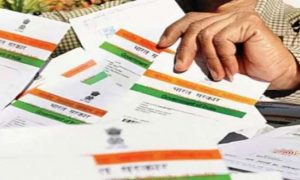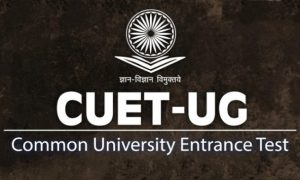That Indian politics and American politics are similar is being repeatedly sensed by everyone who follows both.
“We’re all victims,” Trump told a huge all-White audience in Georgia on December 5. “Everybody here. All these thousands of people here tonight. They’re all victims. Every one of you.”
Apart from wanting the crowd’s help to somehow, anyhow, turn his emphatic loss to Biden into a win, Trump was also firing up his base for the two Senate run-offs set for January 5. Injecting victimhood was his brazen policy for both goals.
In the U.S. and in India, “Injustices long borne by the majority” – America’s Whites and India’s Hindus – has been a common theme for political marketing. “Minority appeasement” has been the other side of this coin.
Thus, on December 10, we could hear the Deputy Chief Minister of Karnataka’s BJP government, Ashwath Narayan, tell NDTV’s Sreenivasan Jain that those needing protection in his state are the cow vigilantes. As he puts it, the vigilantes are bravely defending “the sentiment of society” and “the culture of the people”.
The Deputy Chief Minister is laying down that no one consuming beef can be part of society or the people. She or he is an outcast or a foreigner. And those supposedly assisting such an “outsider” are a menace to “society” and to “the people”.
These remarks are only a fresh instalment in the sustained, often angry, narrative of Hindu victimhood emanating from persons currently in power in many of India’s states and in New Delhi. It is a narrative that over the years has fetched large dividends for the BJP.
The earlier Indian story was different. Not grievance but confidence was the conspicuous Hindu note during India’s freedom movement and for the first four decades after 1947. No one at or near the political centre cried out for help to enable India’s Hindu majority to protect itself from Muslim compatriots.
Gandhi did not. Nor did Nehru, Sardar Patel, Subhas Bose, Ambedkar, Bhagat Singh, Rajagopalachari, Rajendra Prasad, Radhakrishnan, Kamaraj, J.P., Lohia, Kripalani, Lal Bahadur Shastri, or Indira Gandhi. None of them.
Self-confidence used to mark the Hindu spirit. And when Partition greatly reduced the Muslim proportion in India’s population, the spectre of “the domineering Muslim” lost all credibility. Before long, however, the political value of Hindu victimhood was discovered. “We are victims in our own land,” became a potent cry.
On the globe’s opposite side, something similar happened. America’s Whites were warned that their society and culture were under threat because ex-slaves, the African Americans, were getting educated and vocal, Latinos were immigrating from the south, and Asians, too, were arriving.
Now something more positive is trying to happen in the U.S. Solidarity across racial divides has confronted attitudes of bullying. In the Biden-Trump contest, another quality, integrity, has emboldened judges and officers at county and state levels, and in crucial federal departments, to stand up for the law and stand up to Trump.
Trump has not given up, and many Republican politicians have yielded to his bullying. Yet it seems as if oft-disdained integrity, working in the most critical places, has saved America’s prestige.
In my distant corner in Illinois, I ask whether there aren’t positive images in India too. Isn’t there some incredible integrity in the farmers protesting in Delhi, and incredible stamina and courage as well?
The farmers’ central charge laid at the Modi government seems absolutely unassailable. “You have enacted far-reaching laws that affect our lives without consulting us. This is undemocratic.”
Will this frontal defiance of inflicted laws turn out to be a major event in current Indian history? Others will know better than me, but at least the question is being asked.
To some extent at least, the solidarity-across-divides which has marked the resistance to Trump seems to be at work in India too. The farmers marching to Delhi and camping outside the capital’s gates seem to be speaking for all Indians, not for any majority or minority group, and the support they are receiving also appears to come from all sides and many political parties.
We should not underestimate, in India or in the U.S., the appeal of majority victimhood, especially when backed by limitless resources. Yet solidarity and integrity too are potent, especially when deployed in defence of indisputable democratic rights.
Can a government that parades its democratic credentials endlessly oppose a demand that the people must be consulted before drastic and dramatic changes are imposed on them?





































